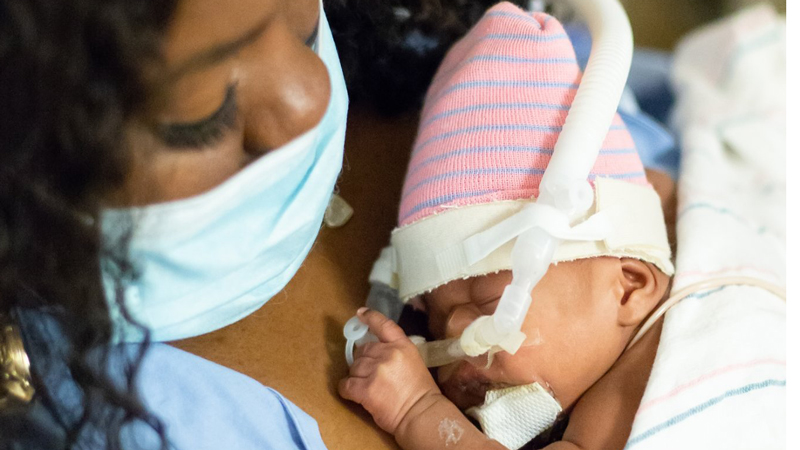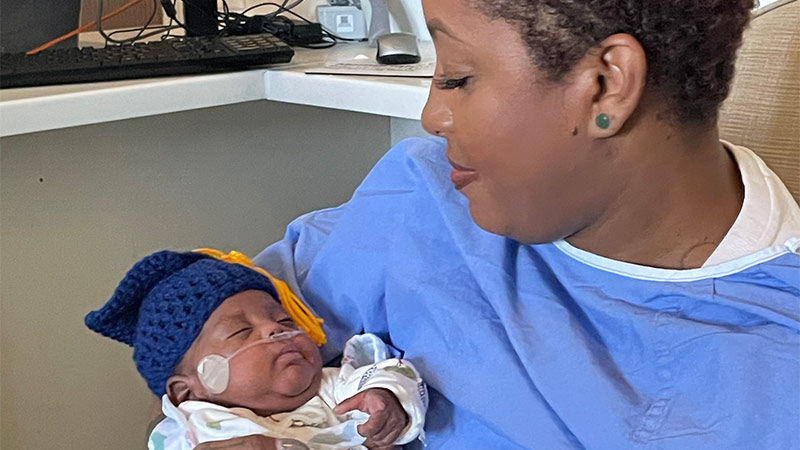With the advancement of medicine and prenatal care, prematurity is declining in the United States. In 2006, the pre-term birth rate was 12.8 percent and in 2013, it dropped to 11.4 percent. Even with these advancements, 1 in 9 babies are born prematurely in the U.S. each year.
Levels of Prematurity
Prematurity is when a baby is born at least three weeks before the designated due date (37 weeks). A full-term baby is born between 37 and 40 weeks.
Depending on the arrival of the baby, there are different types of prematurity:
- Micro preemie: Born before 26 weeks or weighing less than 1 lb. 12 oz.
- Very Premature: Born between 27 and 30 weeks
- Moderately Premature: Born between 31 and 34 weeks
- Late Pre-Term Infant: Born between 34 and 37 weeks
Common Health Concerns for Premature Babies
During pregnancy, a baby meets growth and development milestones each week. When a baby is born prematurely, they are more likely to experience health problems because they did not spend a full 40 weeks in the womb. Since the baby had less time in the womb, they may have some medical conditions that need to be taken care of in a neonatal intensive care unit (NICU).
Common health concerns for premature babies include:
- Jaundice
- Feeding challenges
- Respiratory issues
- Apnea
Risk Factors for Prematurity
Even if a woman has a “normal” pregnancy, there is still a risk of having a premature baby. Some known risk factors for prematurity include:
- Previous premature birth
- Multiples (twins, triplets)
- Problems with uterus/cervix
- Chronic health problems
- Certain infections during pregnancy
- Alcohol, tobacco and drug usage
Importance of Prenatal Care
Prematurity is not necessarily something that can be prevented, but it is important for a woman to pay attention to her body during pregnancy to ensure their baby gets the best start. Getting early prenatal care can keep a woman and her doctor informed of the pregnancy from the start to birth. In addition, having the baby at a hospital with a NICU, like Miller Children’s & Women's, will ensure immediate medical attention, if necessary.
Neonatal Intensive Care Unit at Miller Children’s & Women’s Hospital Long Beach
The NICU at Miller Children’s & Women’s Hospital Long Beach cares for more than 1,000 critically ill and premature infants each year and is one of 22 hospitals in California to feature a regional Level III NICU, which is the highest designation available in California. This means the unit must meet strict state regulatory criteria to provide the necessary care for sick infants who need immediate surgery, or who weigh less than 2 pounds.
The NICU also features a Complex Care Area within the NICU that ensure that patients with a severe diagnosis or pending procedures and surgeries receive special attention and care. The care team assigned to each complex care area patient stays with him or her throughout their stay.
Centers & Programs
We're one of 22 hospitals in California to feature a regional Level IV NICU, which is the highest designation available by the American Academy of Pediatrics. This means we have advanced capabilities, along with skilled specialists, to care for sick and critically ill, and premature babies. We treat nearly 1,200 critically ill and premature babies each year.



